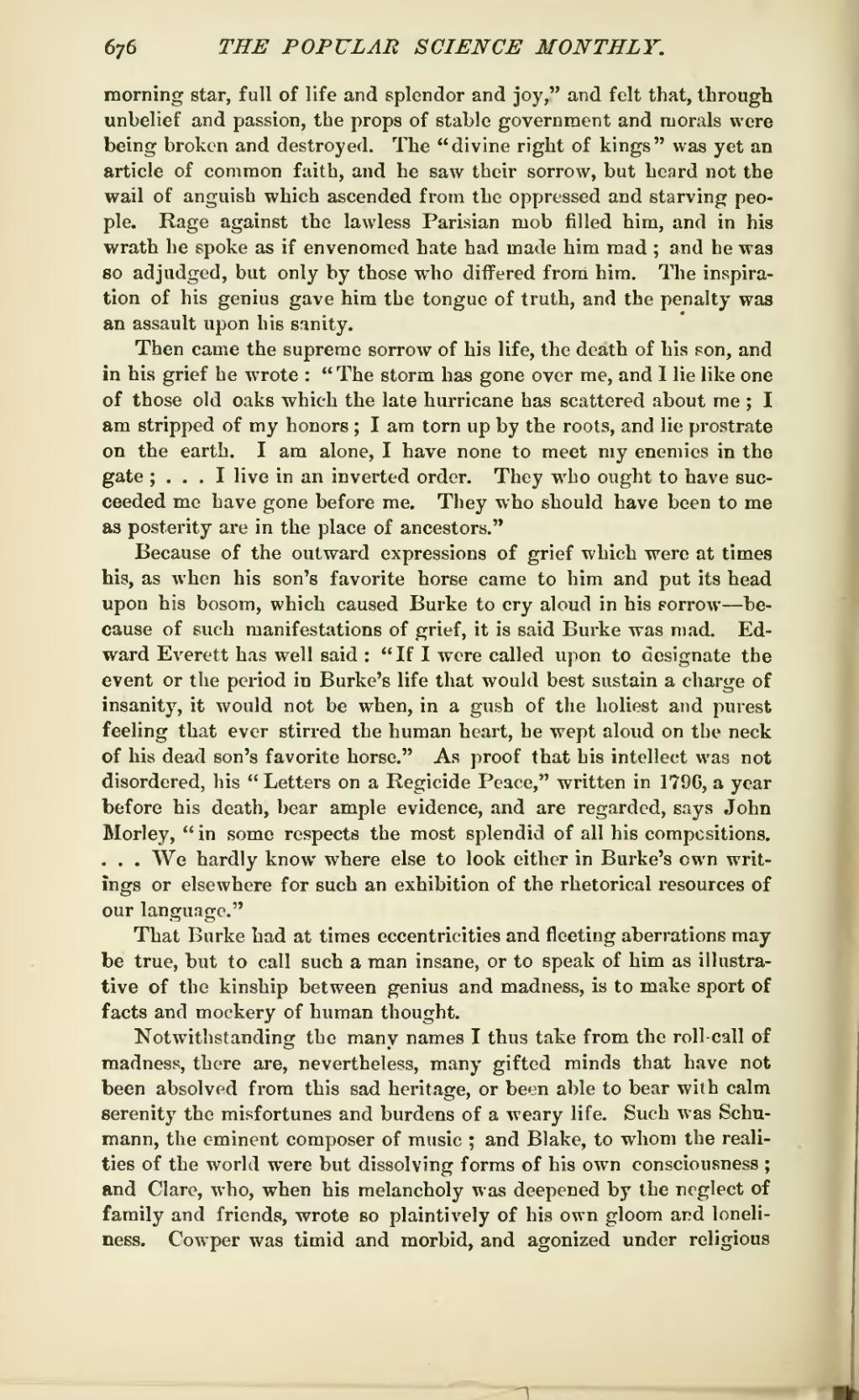morning star, full of life and splendor and joy," and felt that, through unbelief and passion, the props of stable government and morals were being broken and destroyed. The "divine right of kings" was yet an article of common faith, and he saw their sorrow, but heard not the wail of anguish which ascended from the oppressed and starving people. Rage against the lawless Parisian mob filled him, and in his wrath he spoke as if envenomed hate had made him mad; and he was 80 adjudged, but only by those who differed from him. The inspiration of his genius gave him the tongue of truth, and the penalty was an assault upon his sanity.
Then came the supreme sorrow of his life, the death of his son, and in his grief he wrote: "The storm has gone over me, and I lie like one of those old oaks which the late hurricane has scattered about me; I am stripped of my honors; I am torn up by the roots, and lie prostrate on the earth. I am alone, I have none to meet my enemies in the gate; . . . I live in an inverted order. They who ought to have succeeded me have gone before me. They who should have been to me as posterity are in the place of ancestors."
Because of the outward expressions of grief which were at times his, as when his son's favorite horse came to him and put its head upon his bosom, which caused Burke to cry aloud in his sorrow—because of such manifestations of grief, it is said Burke was mad. Edward Everett has well said: "If I were called upon to designate the event or the period in Burke's life that would best sustain a charge of insanity, it would not be when, in a gush of the holiest and purest feeling that ever stirred the human heart, he wept aloud on the neck of his dead son's favorite horse." As proof that his intellect was not disordered, his "Letters on a Regicide Peace," written in 1796, a year before his death, bear ample evidence, and are regarded, says John Morley, "in some respects the most splendid of all his compositions. . . . We hardly know where else to look either in Burke's own writings or elsewhere for such an exhibition of the rhetorical resources of our language."
That Burke had at times eccentricities and fleeting aberrations may be true, but to call such a man insane, or to speak of him as illustrative of the kinship between genius and madness, is to make sport of facts and mockery of human thought.
Notwithstanding the many names I thus take from the roll-call of madness, there are, nevertheless, many gifted minds that have not been absolved from this sad heritage, or been able to bear with calm serenity the misfortunes and burdens of a weary life. Such was Schumann, the eminent composer of music; and Blake, to whom the realities of the world were but dissolving forms of his own consciousness; and Clare, who, when his melancholy was deepened by the neglect of family and friends, wrote so plaintively of his own gloom and loneliness. Cowper was timid and morbid, and agonized under religious
